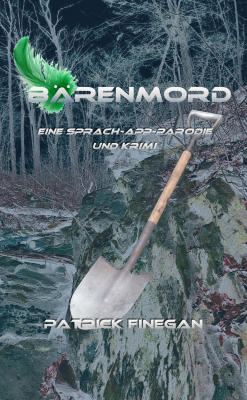
My latest novel, Toys in Babylon, arose from an online challenge: Draft and post the next chapter of a community authored novella – but in two languages – then hand it off to the next contributor. I penned chapter one, then, impatient for others to contribute, completed the remaining chapters myself.
The German version of the novel, Bärenmord, goes on sale September 1. I owe a debt of gratitude to my editors, Ulrike Gemein and Regina Goetz, for making it comprehensible. Whether it is as captivating as I hope (i.e., “fesselnd”) remains to be seen.
I, for one, am pleased with the result, but I ask myself, “Did I really compose a book in two languages?” The honest answer is regrettably “no”. I did, in fact, compose the original first chapter (now chapter 2) entirely in German, waited a day, then translated it into English. But the remaining 24 chapters were composed in reverse – first in English, then German. I performed the translations by hand (zero AI), often laughably, always arduously, but from English to German, not vice versa. Conceptualizing plotlines and dialog in a foreign language is just plain hard.
Writers such as Vladimir Nabokov, William Somerset Maugham and Joseph Conrad hold a special place in my heart – not just because they were extraordinary writers, but because they composed and published their works entirely in an adopted language (English), and not initially in Russian, French or Polish. Ah well, next time perhaps two chapters!
One of the biggest translation challenges for me was identifying and reformulating passages that contain puns and colloquialisms, knowing they were doomed in a second language. Try explaining, for example, how an idea came “out of left field” to a native Bavarian when the closest he or she will ever come to understanding baseball is watching paint dry. Alternatively, the Bavarian may indeed understand your colloquialism, but divine from its formulation that you are a foreigner. Example: everyone on the planet understands the metaphor “a bull in a China shop” but native Germans say, “an elephant in a porcelain shop”. Different animal, different shop. Thank goodness for editors!
OpenAI and other AI engines may eventually make writers obsolete, but there will always be a market for good literary translators. I am hopeful my novel, Bärenmord – Ein Sprach-App-Parodie und Krimi, illustrates why.